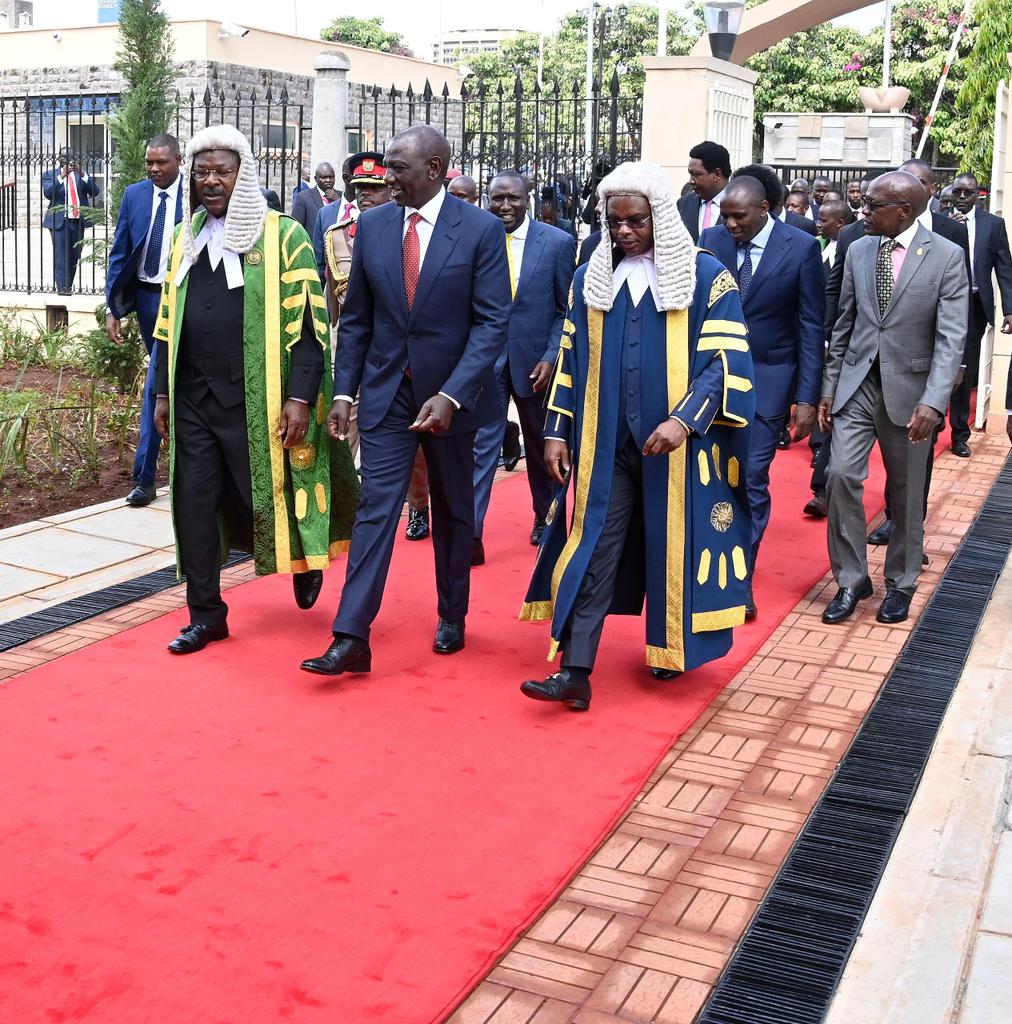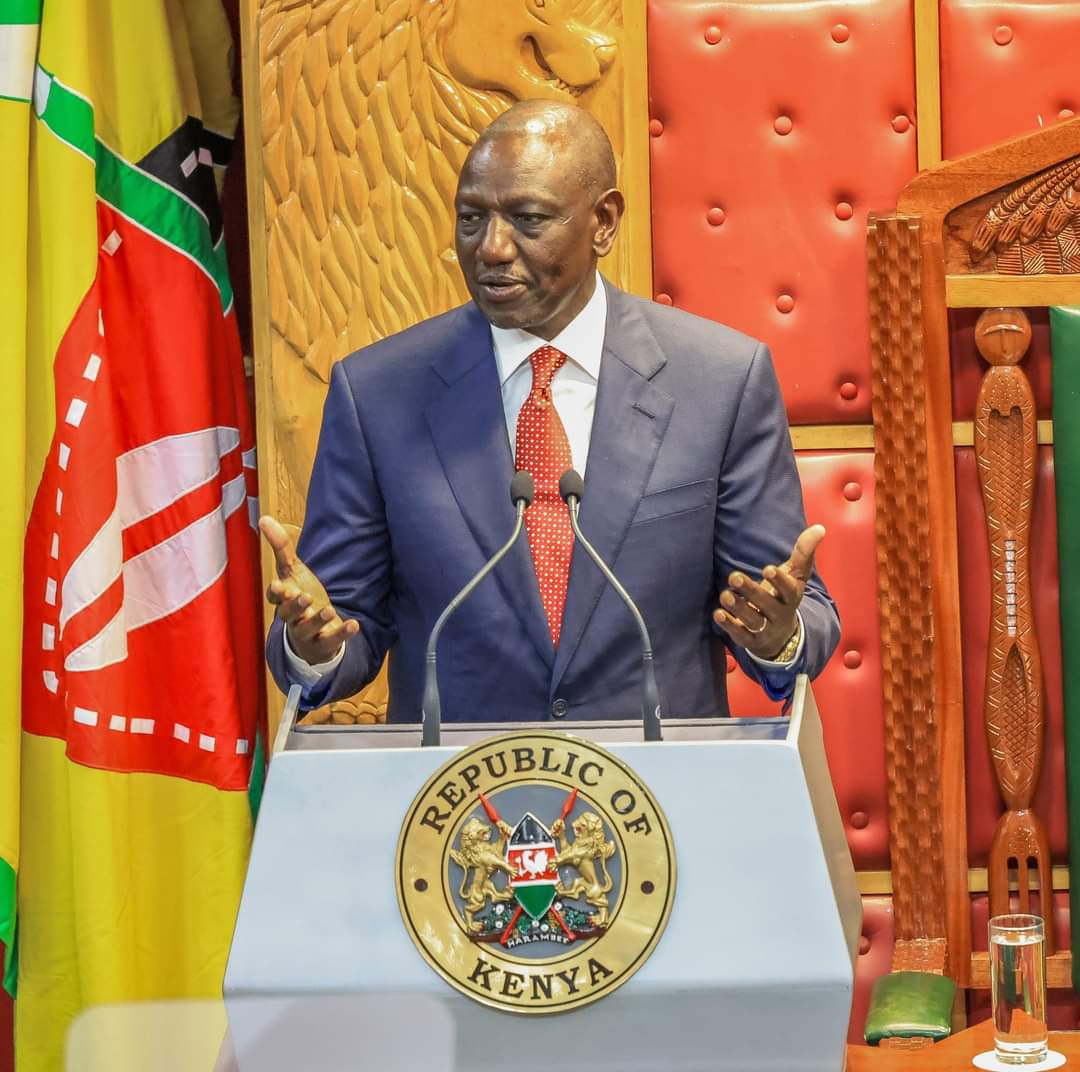Kenya’s 2024 State of the Nation address was a moment to pause and listen.
President Ruto took to the podium, not as a politician seeking approval but as a leader balancing hope with hard truths.
Yet, as I sat through the long exposition of achievements and plans, one thought lingered: Is this progress we can feel, or is it just another promise wrapped in eloquence?
For once, though, it lingered with an almost tangible sense of honesty and conviction in the president.
Economy: Growth, or Games?
While economic indicators are undeniably strong, the real question is whether ordinary Kenyans feel the impact in their day-to-day lives.
Shilling appreciation: From KSh 162/dollar (Feb 2024) to KSh 129/dollar – a 20% gain. Sure, it eases external debt, but how long before external pressures bite back?
Inflation: From 9.6% (Sept 2022) to 2.7% (Oct 2024). This is the first time in 17 years we have seen this low.
Forex reserves: Now at $9.5 billion, covering 4.8 months of imports – the highest in a decade. This boost, however- means little in stability for low income businesses on the ground.
Interest rates: Declining, making loans cheaper and growth more feasible. Yet, can we count on this to stimulate long-term investments?
Tax revenue: This is up by 11.5% as at June 2024 – thanks to expanded tax measures. It is a solid step forward, but then alot of hiccups in translating this growth into tangible benefits for taxpayers.
Economic growth: 5.6% (2023) with projections of 5% (2024) and 5.6% (2025).
We wait.

Taifa Care: Kenyans Hunger for Dependable Healthcare
The transition from NHIF to Taifa Care is bold – maybe even revolutionary. Finally, a healthcare system that promises inclusion, efficiency, and affordability.
It’s ambitious, but ambition needs execution. Are rural clinics ready to handle the influx?
Will this actually mean fewer Kenyans resorting to Harambees to pay hospital bills?
This is where the President struck a chord, reminding us of the countless families one illness away from financial ruin.
“Under Taifa Care, citizens are eligible for all services upon registration. I urge every Kenyan to take the most important step I’m securing dependable healthcare for themselves and their families: register now or at the earliest opportunity….” President Ruto said.
If his administration delivers even half of what Taifa Care promises, it could be a game changer.
Affordable Housing: Building Dreams or Boxes?
Housing was another big-ticket item in the President’s speech.
The affordable housing program has created over 164,000 jobs and nearly 5,000 units are ready for sale.
But here’s my dilemma: Is affordable housing a plan for dignity, or just a way to tick off a manifesto promise?
When he spoke about planned urbanization and its role in protecting agricultural land, I felt a spark of hope.
But I wonder – are these homes truly accessible to the average Kenyan, or will they end up as investment opportunities for the elite?
Agriculture : Turning Point for Food Security
As a fledgling farmer, I was very keen on the president’s remarks around it:
- 6.45 million farmers in 45 counties have received subsidized fertilizer since February 2024. Impressive? Yes.
Small-scale farmers, though are yet to reap the real benefits, as middlemen still cling on the reins.
- Over 7 million bags of fertilizer distributed through e-vouchers.
Efficient on paper – but the hardship lies in its accessibility for farmers in remote areas.
- A projected 74 million 90kg bags of maize this season. A national record!
But let’s ask – will this reduce food prices, or will cartels still dictate the market?
- 11 long-term deals with fertilizer suppliers to guarantee year-round availability.
Good news, finally – as long as this consistency can survive the 5-year political cycles.
The president’s goal is clear: Boost agricultural output, cut food imports, and make food affordable. If executed well, this could be a game changer.
Kenya’s agriculture sector has been stuck in cycles of inefficiency for decades. This intervention feels different – ambitious, but practical.
However, the devil is in the implementation.
A Nation’s Strength Lies in Its People
What struck me most wasn’t the economic jargon or lofty policy talk – it was the President’s plea for unity.
His call for “radical collaboration” felt genuine.
But unity isn’t built on words. It requires action, fairness, and trust – values that feel increasingly rare in our political space.
As a Kenyan, I want to believe in this vision. I want to feel the optimism he exuded. But belief needs proof.
Is this address a turning point, or will it join the pile of forgotten speeches that promised more than they delivered?
What are your thoughts? Let me know below in the comment section.

